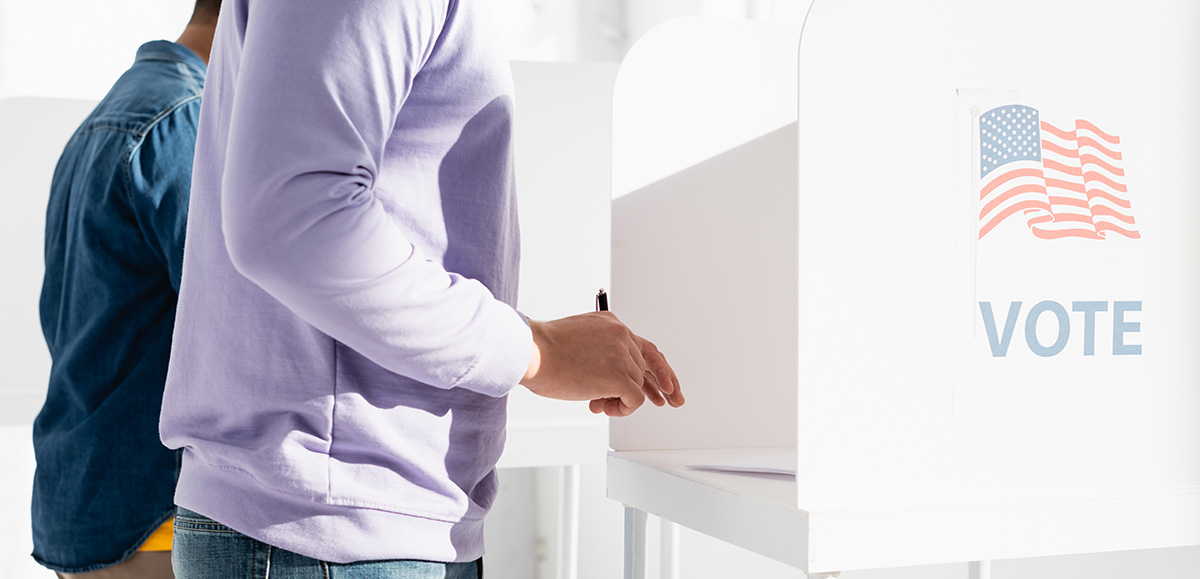
Why Your Vote Matters to Your Health

Does your vote matter?
A healthy democracy is not only one where people vote, but one where people understand that civic engagement has an impact on their health. The relationship is cyclical — health influences voting turnout, and voting shapes public policy, which in turn affects health outcomes for people and communities. Voting in the presidential election next week is very important. But no matter who wins, the health implications that result from voter participation are strongly connected and should not go unnoticed.
States’ voting policies have a strong influence on how citizens engage in elections. For instance, states with policies like automatic registration, same-day registration, less-restrictive voter ID requirements, re-enfranchising felons, and mail-in voting tend to see higher voter turnout and better public health outcomes.
According to the Health and Democracy Index, Colorado ranked second in voter turnout in the 2020 presidential election, which can be connected to the flexible voting policies we have. Colorado offers same-day registration, mail-in voting, less-restrictive voter ID requirements, and restoration of voting rights for people convicted of felonies. States like Minnesota and Oregon have also continuously ranked high in voter turnout because of similar voting policies.
Though inclusive voting policies are important, some citizens with physical and mental health challenges may still struggle to vote. Factors such as age, race, education, income, and the accessibility of voting methods influence voter turnout, especially among those with health challenges. For instance, people with physical disabilities face barriers such as not being able to wait in line for a long time to vote. This is why providing mail-in options can be essential for some. In addition, poor mental health can also be another pressing factor that can influence a person’s ability to vote. This study concluded that people with depression were less likely to participate in politics due to the lack of motivation and feelings of hopelessness. Communities with more inclusive voting policies experience greater social unity and improved local conditions, which can help address the mental health of many voters.
A person’s occupation may also limit their opportunities to vote in person. One study found that health care workers like physicians, nurses, physician assistants, and dentists were 12-23% less likely to vote than the general population. This is important because it means the people who are working every day to take care of the health of others may not have voice on the policies that affect the health care workforce.
To address barriers to voting, policies and efforts that focus on voter education and mobilization efforts may lead to greater voter turnout. These include:
- Enhancing Participation Among Elderly and Disabled Voters. Implement initiatives to boost voter turnout within these demographics, such as onsite registration at assisted living facilities and mobile voting service points.
- Online Voter Registration. Facilitate online registration and updates to streamline the process for all voters, making it more accessible.
- Supporting Marginalized and Low-Income Voters. Increase voter participation rates in these communities by allowing registration through programs like Temporary Assistance for Needy Families (TANF) and food stamp applications.
- Accommodations for Voters With Disabilities. Provide electronic voting options to ensure that people who have difficulty reading printed material due to a visual, physical, perceptual, developmental, cognitive, or learning disability can cast their votes independently and privately.
To answer the initial question, yes, your vote matters. Voting and participating in democracy matter not only to yourself, but the health and well-being of those who may not have the physical or mental privilege of being able to do so. By implementing inclusive voting policies, Colorado recognizes that poor health may be a barrier to many people who want vote, and in turn, to fostering a healthy democracy.
For more information on the connection between democracy and health, watch our September Hot Issues in Health webinar.

